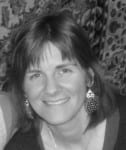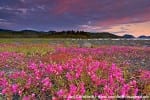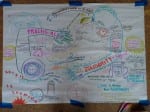Dr. Sarah Amsler
I am a sociologist, critical theorist and Reader in Education in the School of Education at the University of Lincoln. I am also a member of the Social Science Centre, an autonomous higher education cooperative (UK). I live in Lincoln with my husband Mahmood Delkhasteh, who is a writer, social analyst and activist working for democratic change in Iran, and our daughter Laylah, who does many things.
My work centres on the politics of knowledge, education, political economy and cultural practice. I use critical theory and research to understand how these shape the formation of individual and collective subjectivities, the consolidation of and resistance to political-economic and cultural domination, and the material and symbolic organisation of both everyday life and political possibility.
I am particularly concerned with the pedagogical dimensions of neoliberal forms of power and powerlessness; the cultural and material politics of radical democracy, particularly in its prefigurative and dissensual forms; the place of knowledge and education in Frankfurt School, post-structuralist and anarchistic traditions of critical theory; the educative qualities, ethical demands and embodied experience of co-operative, utopian and radical-democratic politics; the activation and advancement of critical philosophy, theory and pedagogy in educational work and activism; and the recognition of politico-educative practice as a primary site of political formation and transformation whose theorisation is central to the critique of capitalism and authoritarian social logics.
I have special interests in the work of Theodor Adorno, Ernst Bloch and Herbert Marcuse; feminist, Marxist and anarchistic theories and practices of critical pedagogy; the critical sociology of education; and the relationship between critical philosophy, participatory research and political formation.
I am presently working on a study of ‘Practices of Possibility in Neoliberal Social Systems’, funded by the Independent Social Research Foundation (http://www.isrf.org/about/current-fellows/). I have recently published a book entitled The Education of Radical Democracy (2015) and co-edited Acts of Knowing: Critical Pedagogy In, Against and Beyond the University (with S. Cowden, J. Canaan, S. Motta and G. Singh, 2013). Links to my other writing are available on this site.
When I’m not working, I can be found playing with the kids. Establishment social theory and research still demand that we segregate caring from the critical attitude, intellectual labour from informal education and everyday life from extraordinary events. These divisions contract the horizons of life fully lived. At least once a day, my daughter furrows her brows and says: ‘Say it in kids’ words’. She reminds me that curiosity is a vital energy, that making sense of the world is a right – a matter of autonomy, dignity and democracy, and that conditions and practices for expanding our horizons of meaning and possibility must always be ever more open.
Why ‘venturing beyond’?
The idea of ‘venturing beyond‘ comes from Ernst Bloch’s The Principle of Hope (1986), a critical analysis of utopian striving in struggles for freedom. No such work is possible without hope, and hope, Bloch argued, is a practice that can be learned through ‘venturing beyond’ the frontier of what is towards the possibility of what is not yet conscious and has not yet become.
For me, this concept captures something of the beauty and impossibility of education, which is most transformative at the frontiers of possibility. Making social change demands that we venture beyond what is regarded as inevitable, possible, realistic, normal and permissible; beyond what we think we, or those around us, can bear.
What are the pictures?
horizon, hope, solidarity
This is a photograph I took of a sunrise while flying from London to Bishkek, Kyrgyzstan in 2007. It’s a horizon. I am fascinated with horizons, fronts, borders, encounters and frontiers. As Jodi Dean writes, a horizon divides both the visible from the invisible, and the possible from the impossible – a ‘fundamental division that we can experience as impossible to reach, and that we can neither escape nor cross’ (The Communist Horizon, 2012, p. 1). For Hans-Georg Gadamer, it is the ‘range of vision that includes everything that can be seen from a particular vantage point’; the paradoxical possibility of meaning and impossibility of understanding one another (Truth and Method, 1997, p. 302).
This is fireweed (chamerion angustifolium). According to the US Department of Agriculture, it’s one of the first plants to ‘colonize’ land after the desolation of a fire or other trauma. I like to think about it occupying, reclaiming, healing the burns; reminding us of the resilience of beauty and hope. It also apparently has many other practical uses for weaving, nourishing, drinking and eating. We need political fireweed just like we need these beautiful blossoms.
This is a wonderful record of a public assembly, held at an ‘ecoversities’ gathering in Portugal in August 2015, which explored how people struggling for autonomy and liberation in education, economy, thought and self-governance can exercise ‘practical solidarity’ with one another.


